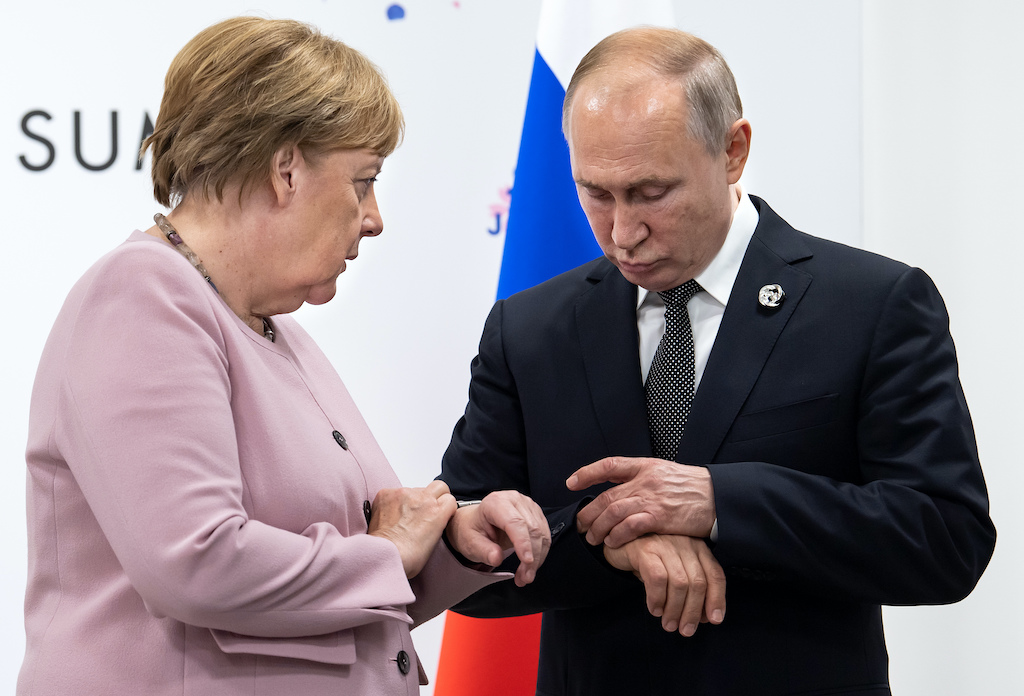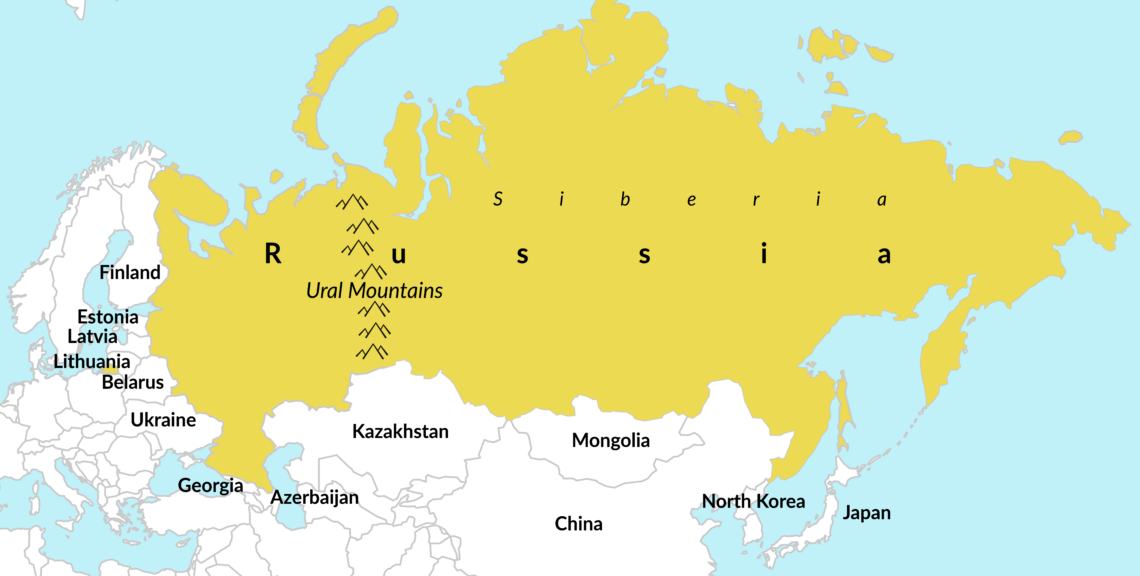Europe and Russia would be wise to seek better relations
As the globalization process ends its 40-year run and the world fragments into political and trade blocs again, the largest powers are adjusting their geopolitical stances. Europe and Russia both have compelling reasons to resolve their differences and increase collaboration.

After the December 1991 implosion of the Soviet Union ended the bipolar Cold War order, which had liberal democracies and the communist bloc at opposing poles, an epoch of cooperation and globalization began. In the economic field, it vastly increased the world’s prosperity, and reduced poverty and hunger. At the same time, the global economy’s center of gravity shifted from the North Atlantic to the Pacific and Eastern Asia.
Trade was liberalized, transactions were conducted mostly in U.S. dollars, and national currencies were increasingly made convertible.
Unfortunately, the rise of China’s economic, political and military strength (achieved through economic liberalization that followed the Mao Zedong era of brutal, doctrinaire communism), has complicated matters. A resurgence of China’s millennia-old nationalist and hegemonic precepts has led Beijing to adopt increasingly aggressive policies toward its neighbors in the Pacific.
China’s ambitions
By various indicators, this latest period of globalization appears to be ending now. Assertive China no longer accepts the role of regional power and is challenging the existing world order. Nearly all trading blocs are protectionist to a greater or lesser degree, but China goes beyond that by violating the rules that govern intellectual property and investment protection, and international antidumping regulations.
China is striving to become more self-sufficient and is developing its own economic and political bloc.
Geopolitically, China claims it is being contained by the United States and has taken an adversarial posture toward Washington’s allies off its coast: particularly Japan and Taiwan (two very special cases for the U.S.) but also the Philippines, Vietnam and Indonesia.
Indeed, U.S. policy has been to contain China. For example, the Trans-Pacific Partnership, a grand free trade project negotiated by the administration of President Barack Obama (2009-2017) and scuttled by his successor Donald Trump in early 2017, pointedly excluded China. These days, the Trump administration is engaged in a heated trade dispute with China – for good reason, as outlined above. There is also the issue of egregious human rights violations in China, especially the mistreatment of the Uighurs and the persecution of Christians.
To minimize the consequences of economic sanctions and other potential retaliatory moves by the U.S., China is striving to become more self-sufficient and is developing its own economic and political bloc, outside the U.S.’s global reach. Such fragmentation is likely to hamper world trade through mounting logistical, financial and legal roadblocks. It also increases the danger of political and armed conflict.
Enter Russia
This situation is challenging for Russia and Europe too. The Russian Federation shares a border with China some 4,500 kilometers in length and another 3,000 kilometer-long boundary with Mongolia – a vast, sparsely populated country sandwiched between Russia and China. Russia’s Siberia, north of this border, is larger than the U.S. or China but has only about 34 million inhabitants. South of the border dwell nearly 1.4 billion Chinese – 37 times Siberia’s population. But even the total population of Russia is small compared to China’s, as is the size of the Russian economy versus that of China.
The West’s posture toward Moscow following the 2014 Ukraine crisis was a combination of naivete and arrogance.
Moscow is in a difficult position here. Its relationship with the U.S. is bad, and Russia has had to function under a regime of Western sanctions. During the times of the Soviet Union, which backed its aggressive designs for a world revolution with a nuclear arsenal, the U.S. was committed to protecting the free world. Russia eventually discarded its communist ideology but has tried since to reestablish its interests and position on the global scene.
There are spheres of mutual distrust between Washington and Moscow. The U.S. foreign services show little understanding of today’s Russia. They appear to miss that it is not the old Soviet Union pushing global revolution but a humiliated former empire that is striving to regain its pride. Of course, Russian aggression against Georgia and Ukraine cannot be justified. Unfortunately, the West’s posture toward Moscow following the 2014 Ukraine crisis was characterized by a combination of naivete and arrogance.
In 2009, the European Union ignored Russia and its perceived strategic interests when it extended its Eastern Partnership initiative to several post-Soviet states, including Ukraine. When, a few years later, Russia mounted a thinly disguised intervention in that country, Europe reacted with lukewarm sanctions, many of them backfiring.
The Obama administration rubbed salt in Russia’s old wounds when it dismissively described it as just a ‘regional power’.
A better reaction would have been an increase in defense spending, especially in Germany, to show NATO’s grit. Long term, this might have been economically less costly to Europe and would have increased its credibility in negotiations. The U.S.’s reaction was strong verbally, but two fundamental mistakes weakened it. The White House declared itself ready to take all possible actions against Russia – except military ones. This amounted to giving Moscow carte blanche in Ukraine. Moreover, the Obama administration rubbed salt in Russia’s old wounds when it dismissively described the aggressor as just a “regional power.”
Washington made another error when it let the Kremlin believe that the Obama administration tried to support regime change in Russia. Ironically, the American ruling elite became livid when evidence of Russian interference in U.S. presidential elections surfaced. The mutual distrust is very strong today.
Faits accomplis have taken place in eastern Ukraine and Crimea. The Western sanctions did bite but also induced Russia to become economically more self-sufficient. Another consequence was Moscow’s pivot to Asia.
Pointers for Europe
All that said, Moscow’s most critical challenge is not in its relationship with the West. It is balancing its relations with China. On one side, the sanctions have led Russia to seek closer ties with China – Russia’s most important neighbor. It is crucial, however, for Russia to safeguard its sovereignty and independence vis-a-vis its eastern neighbor. Moscow wants to deal with Beijing on a level playing field. As relations with the U.S. are not likely to improve soon, Russia will have to rely on partnerships with Europe and Japan to energize its economy and face China as a more equal partner.
This scenario is in Europe’s interest as well as Japan’s. It does not necessarily put them on a collision course with their main trading partner and ally, the U.S. The Kremlin’s main concern is not Russia’s western border. It is the shaky state of its economy and the need to deal with China on an equal footing. And here lies a crucial opening for Europe.
Europe cannot afford to miss out on economic and political opportunities that lie with its eastern neighbor.
Despite the sanctions, Russia is an important partner for Europe. Politically, one cannot ignore a neighbor this big. Trade and investments do matter; natural gas deliveries are vital to both sides. As global fragmentation worsens, it would be in Europe’s best interest to avoid another breakup with Russia. Look at a map of this part of the world.
Facts & figures

It takes one glance to visualize the great advantages of cooperation in the vast continental stretch between Lisbon and Vladivostok, to invoke the vision of Europe’s strength that Pope John Paul II invoked in Santiago de Compostela during his pilgrimage in Spain.
Russia’s geographic potential is immense. Europe cannot afford to forfeit its strategic location, miss out on economic and political opportunities that lie with its eastern neighbor and leave the lucrative business of developing Siberia to China.
Eventually, some solutions will be found for the frozen conflicts in Abkhazia, Ossetia, Donbas and Crimea. Significant defense buildups in Europe may help convince Moscow, without undue threats, of the West’s resolve to protect the security of Central and Eastern European states. A better understanding in the West that Russia’s political and governance systems are best left for Russians to decide on, would help reduce the country’s deeply ingrained fear of foreign interference. Moscow will also have to move more decisively to protect foreign investments in Russia.
It is far better for Europe to work closely with Russia than to force Moscow into a junior partnership with China.
